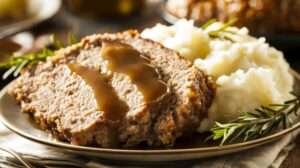
If you have temporomandibular joint (TMJ) disorder, you should certainly seek care from a qualified professional. There are treatments that can help you find long-lasting relief! However, there might be even more that you can do. Adjusting your eating habits may reduce pressure on your jaw joints and lead to a significant reduction in pain and discomfort. What foods should you eat with TMJ disorder, and which ones should you avoid? This blog post provides some specific guidance.
A General Rule of Thumb
Your TMJ is already stressed and inflamed, so the last thing you want to do is overwork it. Therefore, as a general rule of thumb, you should eat a soft diet that is easy to chew. Sticky, chewy, and tough foods should be off-limits while you are striving to get your disorder under control.
Acceptable Foods for TMD
Here are some specific foods that are unlikely to exacerbate your TMJ disorder (TMD) symptoms:
- Dairy. Dairy products and dairy alternatives are a pretty safe category. The only option you might need to be cautious around is sliced hard cheeses.
- Soft grains. Soft breads, soft tortillas, muffins, pancakes, pasta, couscous, mashed potatoes, and hot cereal should all be fairly easy for you to consume.
- Soft proteins. Most ground meats should be fine, as well as boneless fish, eggs, and slow-cooked meats.
- Soft veggies. Cooked veggies tend to be easy to chew. Plus, they may have anti-inflammatory properties that can help with inflammation in your TMJ.
- Certain fruits. While you should avoid hard fruits, most canned fruits should be fine. Fresh items like bananas, avocados, and ripe melons are also good choices.
- Soups. Most soups should be fine as long as they do not contain any undercooked vegetables.
- Desserts. Soft cakes, cobblers, ice cream, cheesecake, and many other desserts should be easy for you to enjoy. (Just be careful not to go overboard on sugar!)
Foods to Avoid
Some foods that it would be best to avoid with TMD include:
- Crusty and hard breads and grains (some people can handle rice, whereas others cannot).
- Tough and chewy meats, such as overcooked chicken breast, certain cuts of beef, and more.
- Hard fruits and veggies, including apples, raw carrots, and celery.
- Anything that contains nuts or seeds.
TMD can affect your eating habits! Listen to your body, and if a food causes a significant increase in discomfort, you may need to avoid it for a while.
Meet the Practice
Dr. Brandon Brunner is an experienced dentist who has completed hundreds of hours of continuing education, much of which focused on TMJ disorder. If you are struggling with symptoms of TMD, he and our team would be happy to provide personalized advice and treatment. Get in touch with The TMJ & Sleep Therapy Centre of Wisconsin at 262-588-3107.


